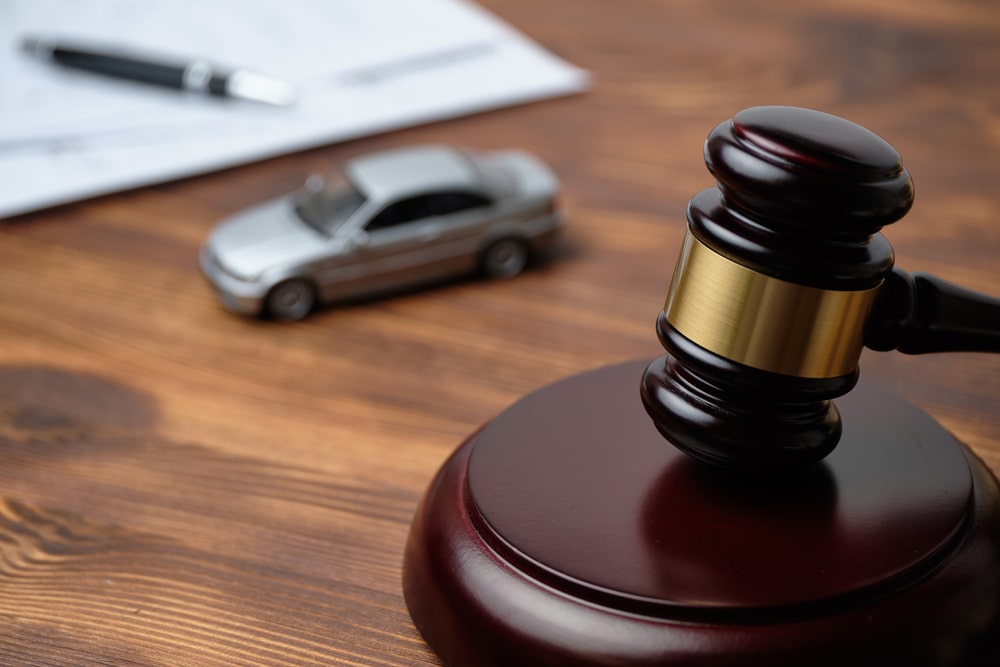Complete the form to schedule a free consultation with a traffic lawyer
Can Your License Be Suspended and Revoked? The Key Differences Explained

Can Your License Be Suspended and Revoked for Different Reasons?
Can your license be suspended and revoked? Yes, and it’s important to understand the difference between the two. While both actions affect your ability to drive legally, they are not the same, and they come with different consequences and legal implications.
Key Distinction: Suspension vs. Revocation Explained
Understanding how these penalties work helps you protect your driving status and avoid long-term damage to your record.
What Is a Suspended License?
A suspension means your driver’s license is temporarily invalid. You cannot drive until the suspension is lifted or expires. Common reasons include:
- Unpaid traffic tickets
- Accumulating too many points
- DUI or refusal to take a breath test
- Insurance violations
- Missed court appearances
In many cases, a suspended license can be reinstated after:
- Paying a reinstatement fee
- Completing a required program
- Meeting court conditions
To learn how to fix a suspension quickly, explore how Ticket Void works to connect with traffic attorneys.
What Is a Revoked License?
A revocation is more serious. It means your license is canceled completely, and you must apply for a new one after a specific time period, if allowed at all.
Common causes of revocation include:
- Multiple DUI convictions
- Driving without insurance repeatedly
- Serious criminal offenses involving a vehicle
- Being declared medically unfit to drive
When revoked, you lose your right to drive entirely and may need to pass written, vision, and road tests again if reinstatement is allowed.
Dual Penalties: Can Your License Be Suspended and Revoked?
It’s Rare, But It’s Possible
Can your license be suspended and revoked? Yes, although not always at the same time. Here’s how it can happen:
- Suspension first, then revocation: A driver’s license may first be suspended due to a specific violation (like failing to appear in court). Later, a more serious offense (like a DUI conviction) could lead to revocation.
- Multiple violations: A driver may have multiple offenses pending, some causing suspension and others triggering revocation.
In these cases, the suspension might be active before the revocation is processed. Once revoked, the suspension becomes irrelevant because the license no longer exists.
Reinstating After Both Penalties
If you’ve experienced both, reinstatement will be more complex and may involve:
- Fulfilling all court requirements
- Completing mandatory courses (DUI, defensive driving, etc.)
- Reapplying for a new license from scratch
- Paying multiple fees and penalties
It’s strongly advised to speak with a traffic attorney to navigate these steps.
Action Steps: What to Do If Your License Is at Risk
If you’ve received notice that your license is suspended, revoked, or both, don’t ignore it. Each action comes with deadlines and legal requirements that must be handled quickly.
Steps to Take:
- Review the notice carefully for the reason and effective date.
- Contact your DMV to confirm the status and learn what is needed.
- Pay any outstanding tickets or fines as soon as possible.
- Hire a traffic attorney to help challenge or reduce penalties.
- Follow all reinstatement instructions once eligible.
You can learn more about your state’s laws regarding license actions by reviewing state traffic laws.
Understand Suspension and Revocation Rules Before You Drive
Can your license be suspended and revoked? Yes, and either action can result in losing your legal ability to drive. Suspensions are often temporary, while revocations are more severe and may require you to start over. If you’ve received a notice or are unsure of your license status, now is the time to act. Don’t wait until a traffic stop leads to criminal charges.
Get Help with Suspended and Revoked Licenses Today
If you’re facing a suspension, revocation, or both, Ticket Void can help. We connect drivers with experienced traffic attorneys who understand the DMV process and court system. Request your free consultation today and get back on the road legally and confidently.
Frequently Asked Questions (FAQs)
1. Can your license be suspended and revoked at the same time?
Yes, though not always literally simultaneously. A suspension may be followed by revocation due to separate or escalating offenses.
2. How long does a license suspension last?
It depends on the violation, but most last from 30 days to 1 year. Some can be indefinite until requirements are met.
3. Can you reinstate a revoked license?
Sometimes. It depends on your state and the reason for revocation. You may need to reapply and pass exams.
4. Is driving on a revoked license a crime?
Yes. Driving after revocation is often a criminal offense and may result in arrest, fines, or jail time.
5. How do I find out if my license is suspended or revoked?
Contact your DMV or check your status online through your state’s DMV website.
Key Takeaways
- A suspended license is temporary; a revoked license is permanent unless reinstated.
- You may experience both suspension and revocation, especially for serious or repeated offenses.
- Revoked licenses require reapplication and full testing in most states.
- Legal help can reduce penalties and simplify reinstatement.
- Always check your license status if unsure, and resolve issues before driving.
Recent Posts
-
How to Seek Reduced Traffic Violation Penalties: Understanding Available Options
-
How to Negotiate a Speeding Ticket in Court Successfully
-
How Do You Get a Ticket Off Your CDL? Expert Defense Strategies
-
What's the Best Excuse to Get Out of a Speeding Ticket? Expert Legal Defense Strategies
-
Is it Better to Just Pay a Ticket or Go to Court? Your Legal Options Explained
